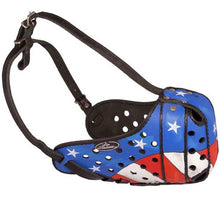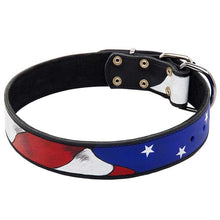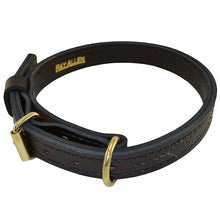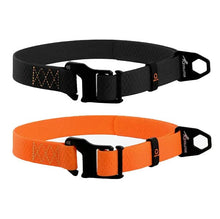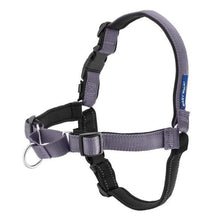5 Things To Look At Before Adding A German Shepherd To Your Family

German shepherds make great active family dogs. As the second most popular dog in the United States, they are very recognizable. People admire them for their beauty, athleticism, and intelligence. It seems as though there is nothing German shepherds can’t do.
Despite how popular the breed is, sadly thousands of German shepherds are surrendered to shelters or abandoned by their families every year. The reasons for this are many but by doing a little research into the breed, some of these abandonments could be prevented.
There is so much to love about German shepherds. Fans of the breed are very loyal to their dogs. All the work of owning one is repaid in love by these devoted dogs over and over again. But, before adding one to your family, here’s some things to look for:
1. Do you really want a German shepherd?
German shepherds are powerful dogs. The AKC breed standard is up to about 90 pounds for a male and 70 pounds for a female. Often, they’re bred to grow even larger, well over 100 pounds.
These power packed pups live for about 12-14 years and for most of those, will be a very active family member that needs lots of time, attention, and love. With German shepherds, this is not optional.
As herding dogs, they are very energetic, have lots of endurance, and are extremely intelligent. It’s no coincidence they are often found working alongside law enforcement, the military, and more. They need an outlet for that mental and physical energy or they can become destructive, anxious, and depressed.

2. Do you want a puppy or adult dog?
German shepherd puppies are very cute. There’s no doubt those little bundles of fur will melt your heart. But the truth is, German shepherd pups are extremely active and need lots of training. Again, as herding dogs they love to bite and like all puppies, explore the world with their mouth. They are also very inquisitive and into everything.
If you don’t have the time and energy it takes to train a German shepherd puppy, an adult dog might be a better fit. Adult dogs may still need some training but most are house trained and have basic manners. However, this is not true for all adult dogs. Some may even come with bad habits or baggage left over from their previous owner of life experience so it’s vital to do your homework before rescuing any adult dog.
Because there are so many German shepherds in rescues or shelters, it’s possible to find one in nearly any age group. From puppies to senior dogs, they are there. If you’re looking for a mellower, less active companion, senior shepherds make great pets.

3. Will you buy or rescue?
When you decide to add a German shepherd to your life, you’ll have to decide if you will buy or rescue.
Reputable breeder
If you decide to buy from a reputable breeder, you’ll need to know what you expect from your puppy and talk to and locate breeders. Let the breeders know if you are looking for a companion, show dog, competitive, or performance dog.
Reputable breeders will ask you many questions and require a contract and vet references to make sure you can afford to take care of one of their dogs. They breed to preserve and develop the breed. Things that identify a reputable breeder:
• Genetic test for hip and elbow dysplasia
• OFA Certified
• Health screen dogs and puppies
• Breed for good temperament
• Don’t breed sick dogs
• Breed one type of dog
• Will want to interview and meet you
• Will request vet references
• Require a contract with return to breeder clause
• Have a waiting list for puppies
• Be a breed club member
• Show or compete with their dogs
• Own titled dogs
• Provide extensive lineage
• Operate clean, sanitary facilities
• Allow you to visit and see their dogs
• Breeder will match a dog to your needs
• Provides references
• Will ask you if you can afford their dog, if you own or rent, how you will exercise your dog, where your dog will live, etc.
You can find reputable breeders through word of mouth, social media, dog clubs, veterinarians, dog shows, kennel clubs, German shepherd clubs, and the internet. Just do your research and check references. Ask for help from the dog community if you need it.
Other breeders
We’d like to believe that there is a difference between other breeders, back-yard breeders, and puppy mills. There are people out there with AKC registered dogs who love and breed them but don’t invest into a true breeding program, have an oops litter, want one litter, and many more reasons. It’s up to you if you choose to buy a puppy from such a breeder. However, there are also breeders to avoid like the plague. Signs to watch for:
• Doesn’t require a contract
• No spay, neuter, return to breeder clause
• No lineage
• Doesn’t interview you
• Doesn’t ask if you can afford to care for their dog
• Doesn’t require references
• Doesn’t care where the puppy goes
• Doesn’t health screen
• Doesn’t vaccinate or worm
• May breed multiple breeds
• Dirty facilities
• Doesn’t allow you to visit or meet the parents
• Parents have bad temperaments or look unhealthy
• Tries to meet you off site
• Dirty dogs
• Unhealthy looking puppies
• Shy, bashful dogs and/or puppies that don’t interact with humans
• Breeds females under 24 months
• Breeds same dog more than once a year
• Only one dog is registered
• Feeds low quality food, lack of clean water
• Doesn’t ask you about food
• Will let you take a puppy before 8 – 12 weeks
• Breeds large dogs
• Website doesn’t match what you see
• No references
• Seems off
• Evades questions or makes multiple excuses

4. How will you take care of a German shepherd?
German shepherds are great dogs. They make the best companions and their love and loyalty is off the charts. However, the breed comes with some important responsibilities and may not fit into every lifestyle, such as:
• May not be allowed at some rental houses, apartments, or hotels.
• The larger the dog, the more veterinary care, medications, food, and flea control costs.
• Are power chewers that need lots of durable chews and toys.
• Needs plenty of space to exercise in every single day, all year long.
• They don’t do well alone for long periods of time.
• Needs lots of training to learn to be a good dog and burn energy.
• Super smart, needs lots of mental stimulation.
• Requires lots of love and companionship with their families.
• Sheds, year-round, 24/7, all the time.
• Needs lots of socialization so they don’t become over protective.
• Loves to go places, on new adventures, and be with their family.
• Loves to play.
• Gets restless, anxious, and destructive when they don’t get their physical and mental needs met or they don’t get the time and attention they need.

5. Health considerations of German shepherds
German shepherd health problems are impacted by breeding, genetics, and other considerations. While for the most part German shepherds are healthy dogs, they can suffer from certain health problems that can be expensive to treat. When getting a German shepherd, if you have any financial concerns, it may be a good idea to get health insurance for your dog. Some health problems include:
• Requires premium dog food, due to their activity level and breed specific sensitivities.
• Veterinary care, medications, and flea control costs more than smaller dogs.
• Prone to allergies.
• Hip dysplasia.
• Elbow dysplasia.
• Joint problems, such are cruciate ligament injuries.
• Gastric dilatation volvulous/bloat.
• Cancer.
• Megaesophagus.
• Degenerative disk disease.
• Spine problems.
• Perianal Fistula.
• Degenerative Myelopathy.
• Panosteitis.
• Pannus/progressive retinal atrophy.
• Degenerative Myelopathy (DM).
• Pancreatic enzyme insufficiency – malabsorption.
• Irritable bowel syndrome.
We hope you enjoyed this article and have a better understanding of what life is like with German shepherds. Please feel free to pass this article along to your friends.
You may also like: How To Prepare For Your New German Shepherd Puppy




